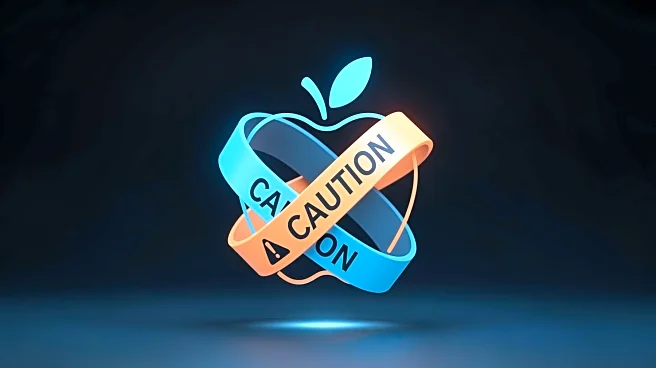What's Happening?
The Trump administration is appealing a federal judge's order requiring full November payments for the Supplemental Nutrition Assistance Program (SNAP) during the ongoing government shutdown. The U.S.
Department of Agriculture (USDA) had planned to fund only part of the November payments, leading to lawsuits from various groups arguing that the administration was neglecting its legal obligation to provide full benefits. The administration contends that complying with the order would cause more harm to the government than the potential food insecurity faced by millions of low-income Americans. Despite having access to a $5 billion emergency reserve, the administration argues that the judiciary is overstepping by directing the executive branch to find the necessary funds.
Why It's Important?
This legal battle highlights the tension between executive discretion and judicial enforcement of statutory duties. The administration's stance suggests a prioritization of administrative convenience over the immediate needs of vulnerable populations. If the courts side with the administration, it could set a precedent allowing the executive branch to claim 'irreparable harm' whenever it is required to fulfill statutory obligations, potentially affecting future government responsibilities in areas like public health and economic relief. The outcome of this case could have significant implications for how government shutdowns impact federal assistance programs and the separation of powers between branches of government.
What's Next?
The Supreme Court has issued a temporary pause on the order, pending a decision from the 1st Circuit Court of Appeals. The outcome of this appeal will determine whether the administration must comply with the order to fully fund SNAP during the shutdown. The decision could influence ongoing negotiations to resolve the government shutdown and may prompt further legal challenges if the administration continues to resist court orders. Stakeholders, including cities, religious groups, and nonprofits, are likely to continue advocating for full SNAP funding to prevent food insecurity among millions of Americans.
Beyond the Headlines
The case underscores a broader ideological debate about the role of government in providing social safety nets and the balance of power between the executive and judicial branches. The administration's argument reflects a political choice rather than a fiscal necessity, raising questions about the ethical responsibilities of government leaders to prioritize human needs over bureaucratic preferences. This situation may also influence public perception of government accountability and the effectiveness of legal mechanisms in safeguarding citizens' welfare during political standoffs.









